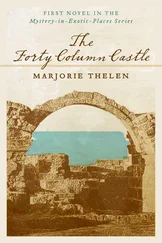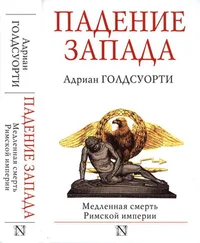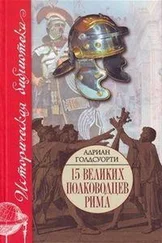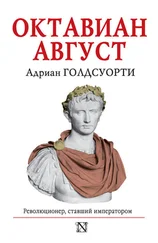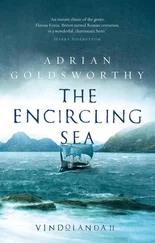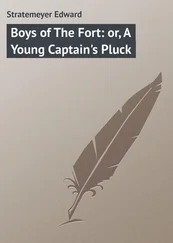This was only part of the great projects undertaken to help the army secure the region, and the last to be completed. For several years now barges were able to bypass the long stretch of rapids on the Danube by using the new canal, aided by the road which for miles ran along the river, often cut out of the living rock. All of that had been completed while Hadrian was last in the area some three years ago, when the bridge was little more than plans and a bold idea. Now, it was almost finished, conceived by genius and turned into stone and timber reality by the labour of many soldiers, including the contingent from Legio I Minervia.
It was natural for a commander to take an interest in work done by his troops, and equally natural that when officers visited the site they asked the presiding architect about the project. Hadrian had put great thought into his questions, wishing to demonstrate that he was no ignorant aristocrat, showing interest for form’s sake and caring little for the answers. So he had asked about the details of the design, of the forces in play, of weight of material and current. They were good questions, useful questions, but Apollodorus’ answers were the same vague platitudes designed for the ignorant. Hadrian pressed him, trying to show that he was different, and even anticipated part of the answer in his question.
‘Apelles to Alexander,’ the architect had told Hadrian, not bothering to explain the allusion. Piso, who had up to this point shown no deep interest, sniffed as if he understood.
Hadrian struggled to control his anger, aware that his face had reddened. It was an old story, and like so many about Alexander the Great, hard to know whether or not it was true. While sitting for a portrait at Ephesus, the Macedonian king had chattered away to the artist and his assistants, asking about composition and colours, and often making suggestions. Eventually Apelles, already famous and soon to win even greater reputation when Alexander declared that only he would be allowed to paint the royal image, told the king to stop talking, because even the lowest apprentices were laughing at his ignorance. The rebuke was a sharp one, arrogant because for all his great skill Apollodorus was speaking to a vir clarissimus , a member of the Senate, let alone kin to the princeps. It was also unfair, for engineering and architecture were among Hadrian’s great passions, and his interest was as informed as it was genuine. He would let the Syrian have his moment, but still wanted to learn all that he could. So he had asked to see some of the plans and said that he wished to take a tour around the bridge from the river. Apollodorus had agreed – it would have been hard to refuse – and delegated this underling to the job.
Ephippus was a Greek from Syracuse in Sicily, who stuttered and twitched in the presence of the distinguished guests, but tried his best. His nervousness was not helped when Hadrian requested that an engineer come with him on his tour of the garrisons to provide technical advice, prompting Apollodorus to say in front of the Sicilian that he was sure he could spare him. By now Hadrian was satisfied with the choice. He had been patient with Ephippus, encouraged him with his smile and by gradually moving from simple to complex matters as he asked about the bridge. The man struck him as thoroughly competent, with extensive knowledge, if lacking in the spark of inspiration or any real appreciation of the aesthetic as more than just theory.
For the tour, the garrison of Pontes supplied and manned one of the slim boats used for patrolling the river. Hadrian and Ephippus stayed in the stern, so that they could direct the helmsman to take them where they wanted to go. Piso hovered nearby, while an equestrian tribune and the two more surprising guests went up by the prow. Most of the rowers were more interested in them than anyone else, and Hadrian could see them twisting their heads at every opportunity to peer back over their shoulders. That was when they had effort to spare, because often the views he wanted meant rowing hard against the current. They muttered, as soldiers will, each time he had the helmsman turn about and head back upstream under yet another of the great arches. As far as he was concerned it was worth it.
‘Quite beautiful,’ Hadrian said softly as they came out into the open air again. He had to admit that Apollodorus had done a good job.
‘Not bad,’ Piso smirked, mistaking his meaning and instead staring at the two ladies standing in the prow, the wind rippling their dresses and outlining their figures. Hadrian’s senatorial tribune could be both vulgar and tiresomely direct. He tended to frown when he was thinking, head slightly bowed, so that he almost stared up as he fixed his gaze on whomever he was addressing at the time. Perhaps Piso believed this made him appear earnest, but the impression was of a halfwit, although Hadrian was coming to believe that it was a false one. Now he was almost leering at the women as blatantly as the soldiers, whenever they got a chance.
They were both married to officers, on the way to join their husbands and would travel with Hadrian on the first stage of his journey beyond the river. Apart from his own escort, there were several hundred troops marching with them on their way to garrisons, so they had asked to come with him and he had been happy to grant the request. The older of the two, Sulpicia Lepidina, was a senator’s daughter, so a clarissima femina , even if she had married a mere equestrian. Her own family was impoverished, from a mixture of excess and poor management, which did much to explain the choice of husband, who had money if not high birth, and was by all accounts a decent enough fellow, well thought of by the emperor – at least when Trajan remembered to think of him at all. Lepidina’s uncle by marriage was Neratius Marcellus, just coming to the end of his term as governor of Britannia, and his brother was in charge of Pannonia. There were six hundred or so senators, and Hadrian always felt that it was like living in some rustic village, where everyone knew each other, and husbands were the neighbours’ cousins or brothers, wives their sisters, and all old kindnesses were remembered just as long as the old squabbles. Doing a favour was always wise, as long as it did not come at too high a price, and he had willingly granted the request when the ladies called on him, having arranged the matter with a courteous letter. When to his surprise they asked to accompany him on his trip on the river, Hadrian readily assented again. Curiosity was impressive in a woman, if not carried to excess.
Hadrian guessed that Lepidina was in her thirties, yet her pale skin was flawless, her hair thick and golden, tied back in a simple bun. She was a beautiful woman, a rare intelligence in her eyes, her pale blue dress, like her hairstyle and modest jewellery, in contrast to the opulence of many fashionable ladies and far more elegant. He liked her, wondered whether she might be interesting company, and regretted that she was not even better connected for he suspected that she might have a formidable instinct for politics. That was a guess, for the lady was also reserved and he had not yet had the time to see whether this could be broken down. If she were ten years older he was sure that he could soon make her laugh enough for the walls to drop and for her to take him into her confidence.
There was a little shriek as the rowers drove the boat against the current and the prow dipped, sending a spray of water over the ladies and the tribune escorting them. The cry was from the second lady, the younger one, Claudia Enica. She was laughing, flirting with the tribune and soon she was talking again, as she had jabbered away from the start. Claudia was green eyed, her flaming red hair rolled and piled high in a style more suited for a dinner than a boat trip. A number of red strands had worked loose of the pins and blew around her. She was younger than Lepidina, perhaps twenty-five, with an expensive green silk dress, almost too much make-up and almost too much jewellery that almost took away her own beauty.
Читать дальше

